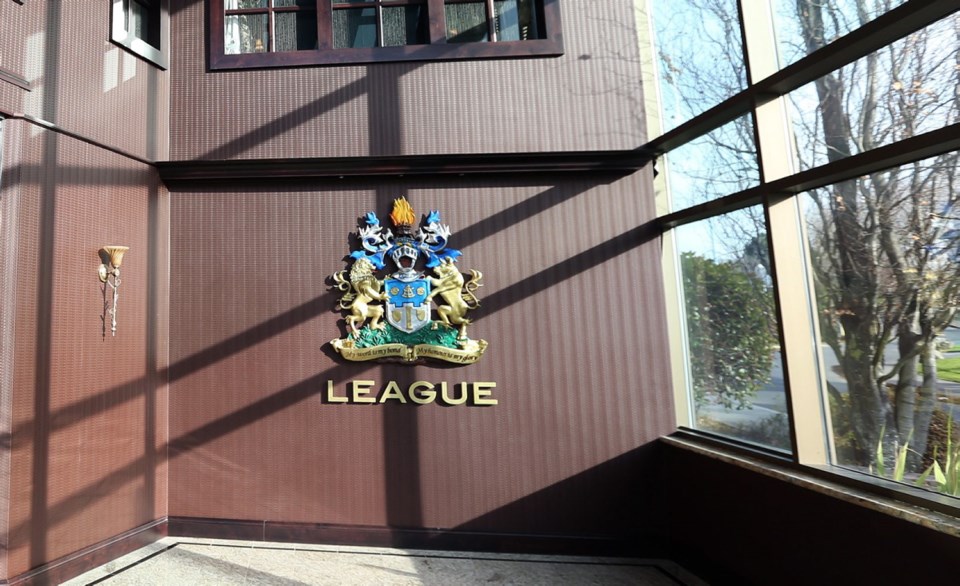Investors who stand to lose more than $330 million as a result of mismanagement by the League group of companies say they are not going to sit idly by and watch as their investments disappear.
According to Philip Jacques, membership co-ordinator for the League Investor Group, which numbers about 150, it is considering action on many fronts. Those include pursuing criminal complaints against League founders Adam Gant and Emanuel Arruda, and pushing Canadian legislators to toughen penalties.
“Right now we are developing a plan, but complaints have already been taken to the RCMP,” said Jacques, an investor who expects to lose most of the $265,000 he invested in League’s IGW real estate investment trust.
Calls to the RCMP to confirm the complaints were not immediately returned.
The B.C. Securities Commission has said it is reviewing a recent scathing report from the monitor overseeing League’s restructuring efforts. The commission said it will review all investor complaints and pursue any evidence of misconduct.
Jacques, echoing the words of many fellow investors, said he believes League started to resemble a Ponzi scheme in recent years, using new money from new investors to continue a pattern of paying cash distributions.
“I don’t know if this started as a deliberate Ponzi scheme, but the last three years the only way to pay cash distributions was to suck in more money,” he said. “I’m hoping the RCMP will see this as a well-orchestrated scam.”
It’s not the first time League’s activities have been labelled a Ponzi scheme. Bloggers Rachelle Berube and Allison Barber were the targets of League’s legal team after they referred to League's IGW real-estate investment trust as a Ponzi scheme last year. The courts refused to silence the bloggers.
A Ponzi scheme is considered to be a fraud, using new investment money to pay off earlier investors in a situation where no investment is actually made. Meanwhile, the fraudster siphons off the early money for personal use.
While that didn’t happen in League’s case, the bloggers said they used the term in the vernacular sense, rather than in accordance with a strict legal definition.
They noted while League’s real-estate investment trust did have assets, they were worth little and saddled with debt, while League continued to bring in new money from new investors to pay back old ones.
The monitor overseeing League’s restructuring pointed out the same thing in a report that described League as poorly run, with inexperienced people at the helm.
The report, which laid the blame for League’s demise on the shoulders of its two founders, said cash distributions to equity-unit holders “exceeded cash flow available from operations and thus were not sustainable.” The shortfall was then funded by new capital from “high-interest loans from non-prime lenders as well as from new investor monies.”
According to the monitor’s report, League, which once had 135 employees and $418 million in assets, will cease to exist by the first quarter of next year as the company has amassed $233 million in liabilities and owes $369 million to investors.
The 4,280 investors have been told that on average, they have lost 90 per cent of their money.
“It has devastated a community,” said Jacques, noting he has been amassing victim-impact statements from other investors with an eye to making representations to legislators to push for regulator improvement and toughening punishment.
Jacques said many of them were riled by Arruda’s recent comments in the Times Colonist. Arruda said he was in the same boat as investors and that because he had invested in League’s products and lost money, he maintained his integrity.
Jacques called that an “appalling insult” to those who are victims of the practices at League.
“Most investors were pulled in by the promise of integrity and honesty and wanted to believe, and some were too trusting and got caught. And many are kicking themselves for being so stupid,” he said.
Victoria-based investor Ash Knightley, who had invested in League’s Residences at Quadra Village, said he hopes the monitor’s report provides the impetus for further investigation from the securities commission.
“It will be interesting to see if the BCSC now picks up the ball and runs with it. Their failure to take action would be, in my opinion a complete abrogation of their responsibilities to the public,” he said.
A similar tone was conveyed in a statement from the League Investors Group, which said the monitor’s report did not go far enough and that League’s activities require a forensic audit.



